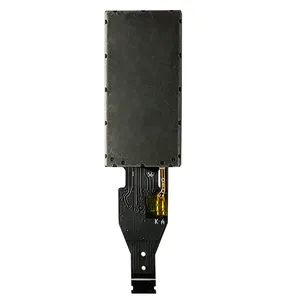LCD Panels: An Overview
LCD panels are a fundamental component in modern display technology, found in a myriad of devices from industrial monitors to personal gadgets. These panels utilize liquid crystal display technology to present visual information. The versatility of lcd display panels is evident in their range of applications, from laptop lcd panels to sophisticated lcd touch screen monitors.
Types of LCD Panels
The diversity of LCD technology has led to the development of various types of panels, each with unique characteristics. IPS panels, known for their color accuracy and wide viewing angles, are a popular choice for professionals in graphic design and video editing. On the other hand, tn lcd panels, or twisted nematic panels, offer faster response times, making them suitable for gaming and dynamic video playback. For those seeking an interactive experience, arduino touch screen modules and lcd panel for raspberry pi provide customizable options for hobbyists and developers alike.
Applications and Features
LCD technology has been adapted for a broad spectrum of applications. In the realm of computing, lcd laptop display units are a staple, providing clear and energy-efficient visuals. The industrial sector often employs rugged lcd panels designed for durability and longevity. For interactive installations and smart devices, touch screen lcd displays offer users a direct and intuitive way to engage with technology.
Materials and Advantages
The construction of LCD panels involves a combination of glass, liquid crystals, and a series of polarizing filters. The integration of an lcd panel led backlight enhances brightness and contrast, contributing to the panel's energy efficiency and slim profile. These materials are meticulously assembled to ensure reliability and performance across various environments.
Choosing the Right LCD Panel
Selecting the appropriate LCD panel requires consideration of the intended use. For portable devices, a lightweight and compact 16x2 lcd panel may be ideal. In contrast, a flat panel monitor with a larger screen size and higher resolution would better serve desktop applications. It is crucial to assess factors such as resolution, aspect ratio, and connectivity options, such as DVI and VGA, to ensure compatibility and satisfaction with the display's performance.
Conclusion
The realm of lcd panels is expansive and continues to evolve with technological advancements. Whether it's for a professional setting, educational purposes, or personal use, there is an LCD panel designed to meet the specific needs of every application. By understanding the various types, features, and materials of LCD panels, buyers can make informed decisions to select the right display technology for their requirements.










































 浙公网安备 33010002000092号
浙公网安备 33010002000092号 浙B2-20120091-4
浙B2-20120091-4